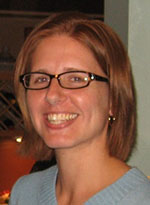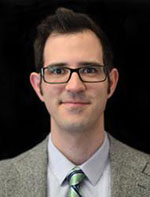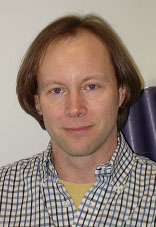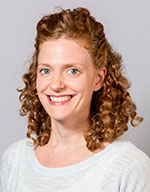A Rare Opportunity
February 17, 2015
At many large universities, graduate programs in education and the social sciences are located in different areas of campus. This results in few natural opportunities for graduate students in different schools or departments to network, brainstorm, and support each other’s research interests.
WCER’s Interdisciplinary Training Program (ITP) in the Education Sciences provides a rare opportunity for graduate students from several disciplines to create a research community. A select group of students from sociology, economics, psychology, political science, and social welfare learn to design, carry out, and analyze specialized research in education issues.
Perhaps most importantly, they learn to produce evidence about what education programs and policies can benefit students.
UW–Madison education professor Geoffrey Borman directs the program, which draws on the talents and research interests of more than two dozen scholars from departments across the social sciences, education, and public affairs. Most have substantial expertise in education as well as in statistical techniques. Some contribute their methodological skills; others their knowledge of problems of education.
Through specialized academic, professional, and financial supports and field research opportunities, WCER’s program provides training in three areas:
- design and implementation of field-based randomized studies in schools and other complex, real-world settings;
- statistical analysis of quantitative survey, observational, and assessment data on education, with special attention to questions of causal inference; and
- impact of policy innovations at the federal, state, and local levels.
Examples of interdisciplinary work
Fellows are required to work on one or more randomized control trial during their five years in ITP. Over the past 10 years students have collaborated on many projects, resulting in publications and presentations.
During the first ITP grant (2005-11) seven ITP fellows (from sociology, political science, and social work) participated in a large study of teacher development for elementary science, and drew upon it for their own research findings and publications. In addition, six ITP students (from political science and sociology) worked on an NICHD-funded study of social capital and children’s development.
During the second grant (2009-16): six ITP students in sociology have worked on a Children, Families & Schools social capital project; responsibilities included travel to field sites to recruit participants and collect data; data entry and analysis; and writing reports.
Four students from economics and sociology worked last year on the “Wisconsin Scholars Longitudinal Study,” a lottery-based randomized assessment of the impact of financial aid on college outcomes in Wisconsin. Also last year four students from sociology, political science, and psychology were involved last year in an IES-funded study assessing the impact of writing activities intended to mitigate the harmful effects of stereotype threat on students’ grades and test scores.
Developing Opportunity
ITP Fellows engage in research that emphasizes questions of “what works” in education—questions that are theoretically informed, but stimulated by practical concerns.
Fellows are enrolled full time as doctoral students. They fulfill all the requirements of their disciplinary homes and receive firm grounding in the theories and methods of their respective disciplines, including advanced statistical training. Within the framework of disciplinary requirements, ITP encourages students and their mentors to craft individualized experiences that suit each student’s interests.
ITP Fellows present their research at one professional conference per year and are eligible to receive funds to attend a second conference where they present their research. Typically, in their third year they serve an internship on a large-scale randomized controlled trial in education. Internship opportunities are provided by ITP partners, including Mathematica Policy Research, the Center for Data-Driven Reform in Education, large urban school districts (Milwaukee, Minneapolis, and Cleveland), and studies conducted by program faculty.
Testimonials

Sarah Bruch

Nicholas Mader

James Benson

Lesley Lavery
Over the past 10 years, ITP faculty supervised 62 PhD students. 30 have graduated, and the others are on track to graduate in next few years.
Several students recently shared their experiences with the program. The story of Sarah Bruch (PhD ‘12, sociology) is typical. Now an assistant professor of sociology at University of Iowa, she cites four aspects of her ITP experience that proved particularly valuable: exposure to top-notch research, both in terms of substantive questions and research methods being pursued by UW faculty and leading researchers from around the country; working in interdisciplinary teams of faculty and graduate students on large-scale research projects; participating in academic conferences and workshops; and access to leading scholars who embraced the mentoring and training role.
Nicholas Mader (PhD ‘10, economics) is now a senior researcher at the University of Chicago’s Chapin Hall, which performs policy research to benefit children, families, and their communities. His project, “Integrated Evaluation Project for Youth Support Service Providers,” cooperates with Chicago Public Schools, the YMCA, Chicago Public Libraries, and other non-profits. “My experience in WCER’s ITP prepared me in two critical ways,” he says. “First, my exposure to the methods and mindsets of the many disciplines represented at ITP enabled me to make my current work more than just the technical, quantitative exercise that was the main training in my economics program. Second, the focus of ITP on understanding the practical policy context of research made this work a natural segue for me, and I could easily understand the potential for academically rigorous research to be used directly in the public sector.”
James Benson (PhD ‘10, sociology) is now a program officer at the National Center for Education Research in Washington, D.C., where he monitors funded research projects. He works in two research areas, K–12 standards and postsecondary and adult education. His work is informed by several disciplines and employs a variety of analytical techniques. “Participating in ITP’s weekly research seminars prepared me by exposing me to researchers in several fields,” he says. “Learning how they conceived their work and how they designed their analytical strategies prepared me to constructively engage with a diverse set of researchers. And the ITP visiting scholars lecture series exposed me to researchers who employ leading-edge analytical strategies. That helped me to understand the techniques available to researchers and to conduct research in a more rigorous and thoughtful way. Finally, having a forum over several years in which to share, receive feedback on, and develop my own research provided many insights into what makes the difference between doing some research and doing excellent research.”
Lesley Lavery (PhD ‘11, political science) is now assistant professor at Macalester College, St. Paul, Minn. “WCER’s training program enabled me to work with Dan Goldhaber, director of the Center for Education Data and Research (CEDR) at the University of Washington-Bothell,” she says. “We worked on a contract with the Gates Foundation’s Measures of Effective Teaching Program. I ended up staying on at CEDR to develop a process to code collective bargaining agreements in Washington State, and that led to several publications. My work at CEDR informed the design of my dissertation research project in the Seattle Public Schools and has opened up a network of scholars who offer important feedback on my work.”


